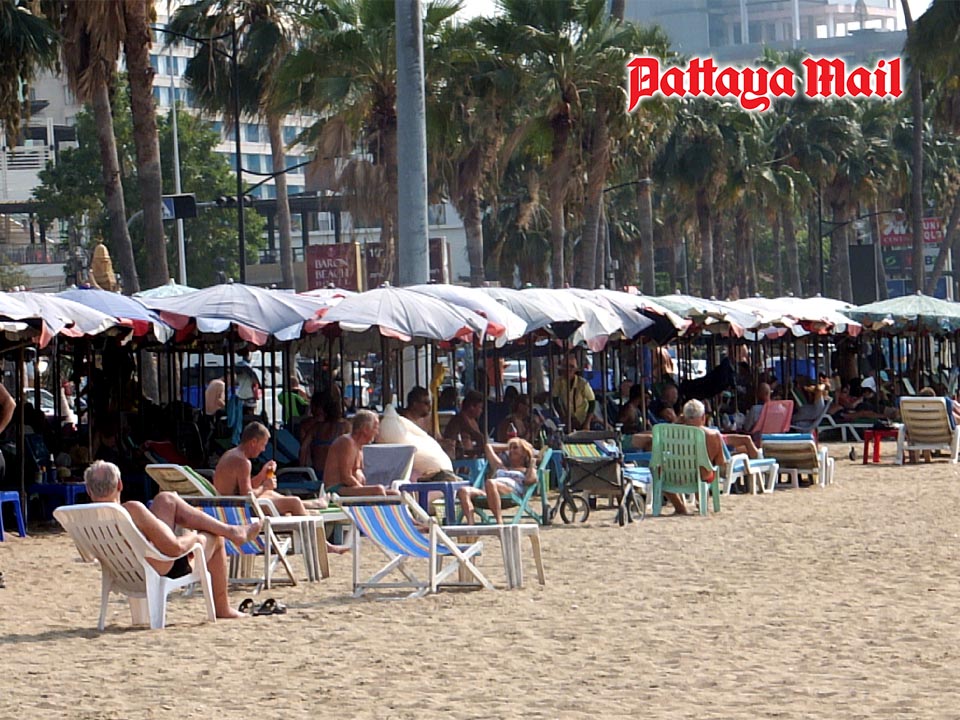
PATTAYA, Thailand –As Pattaya navigates its traditional low season, concerns over the city’s economic future continue to spark debate among expatriates and long-term visitors. Once a destination thriving on seasonal tourism from Europe and North America, Pattaya’s landscape has changed significantly in recent years, with an increasing influx of visitors from Asia and Eastern Europe. While some see potential for new markets to sustain the city, others worry about long-term viability.
Shifting Demographics and Changing Attitudes
A long-term expat of eight years shared his observations, stating that many Thais appear to be experiencing fatigue with foreigners. “The last two years have brought more or less refugees from Eastern Europe because of the war. Many of them think they own the place and lack humility.” This sentiment reflects a broader concern that Pattaya is attracting a different type of visitor, shifting the dynamics of its tourism economy.
One of the ongoing discussions is whether Pattaya is actually recovering. “Not busy now, it’s not recovering,” one commentator remarked, blaming expats for the downturn. Others argue that the traditional high and low season model is outdated, with European tourists diminishing significantly for over a decade and replaced by Russians, Chinese, Indians, and Arabs.
The Role of MICE Tourism and Potential Investments
Some see hope in Pattaya’s development as a MICE (Meetings, Incentives, Conferences, and Exhibitions) destination. Large-scale events could drive business tourism and sustain the local economy year-round. However, questions remain about whether such efforts can fully replace the nightlife-driven economy that has long defined the city.
Casinos are another potential game-changer. “What will happen if/when the casinos are approved? Hope for a new Macau with Chinese investing in condos?” one observer speculated. If legalized gambling comes to Pattaya, the city could see a massive influx of high-rolling tourists, but this transformation could also push out traditional businesses and expats.
Conflicting Views on the Current State of Tourism
Despite concerns over the low season, others insist that Pattaya remains crowded. Some claim that revenue now comes primarily from Asian tourists, particularly Japanese, Koreans, and Indians, who are not bound by seasonal trends. “Nowadays 70-80% of revenue comes from Asians. Europeans and Russians are seasonal, but they’re not significant anymore.”
A more controversial claim that “Indians are sleeping on the beach” was met with mixed reactions. Some asserted that they personally witnessed it, estimating about 100 individuals, while others dismissed it as misinformation. “Pattaya is still crowded… Indians not sleeping at the beach, that’s fake.” Reports also emerged that authorities clarified the situation, stating that it was actually Malaysians, not Indians, involved in the incident.
A Changing Future
Many long-time observers believe Pattaya will be a very different city in five to ten years. “The farang is going extinct. Probably 90% of the bars are owned by 65+ year old farang, right?” Some lament the decline of the traditional expat community, while others see it as a natural evolution of tourism patterns.
The reality is that Pattaya is at a crossroads. While traditional European tourists may be fading, new markets are emerging. Whether the city can successfully transition into a more diversified tourism hub or risks losing its identity remains to be seen. One thing is certain—Pattaya will continue to be a place of heated discussion and rapid transformation.










